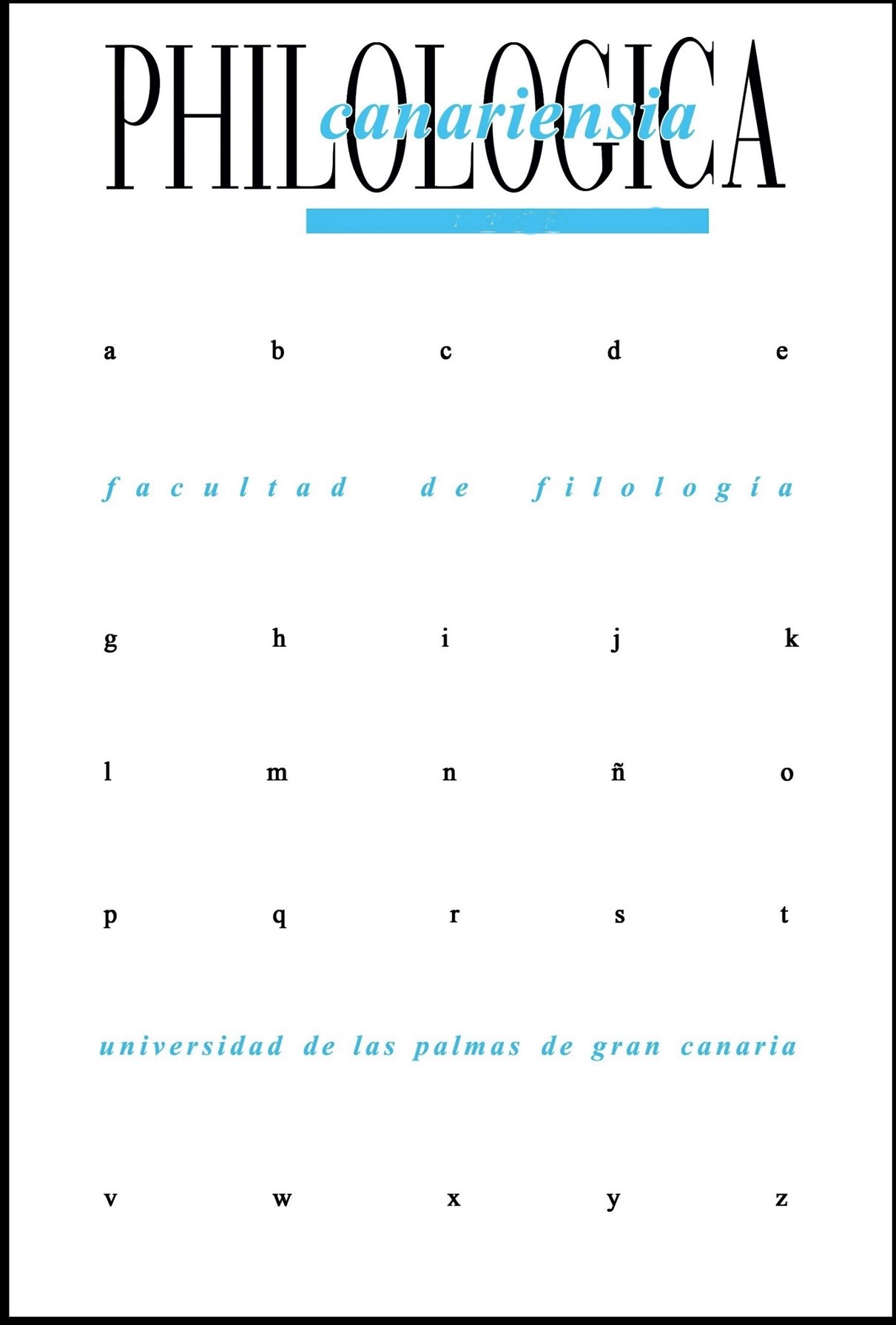Symbolic and Affective Dimensions of Human-Animal Relationships in Anuradha Roy’s The Earthspinner
DOI:
https://doi.org/10.20420/Phil.Can.2024.676Palabras clave:
ecocrítica afectiva, simbolismo, The Earthspinner, mito y tradición, relaciones humano-animalesResumen
The Earthspinner (2021) es una obra con múltiples aristas en la que el perro Chinna actúa como vínculo emocional entre todos los personajes. Este artículo pretende examinar la novela a través de la perspectiva de la ecocrítica afectiva, centrándome en cómo Roy relaciona las imágenes del fuego, el agua y la tierra con las emociones de pérdida, añoranza y odio en la novela. A partir de un análisis poliédrico, me centro en las vidas, vicisitudes y desventuras de los tres personajes principales de la novela, atendiendo a los afectos que mueven y guían sus vidas y a los distintos ejes en torno a los cuales Anuradha Roy ha construido esta novela. Por último, y dada la riqueza simbólica de la obra, ofrezco un análisis hermenéutico global junto con las conclusiones finales.
Descargas
Citas
AHMED, S. (2000). Strange encounters: Embodied others in post-coloniality. Routledge.
AHMED, S. (2004). The cultural politics of emotion. Routledge.
BLADOW, K., & LADINO, J. (2018). Toward an affective ecocriticism: Placing feeling in the Anthropocene. In K. Bladow & J. Ladino (Eds.), Affective ecocriticism: Emotion, embodiment, environment (pp. 1-22). University of Nebraska.
BONDI, L., DAVIDSON, J., & SMITH, M. (2005). Introduction: Geography’s ‘emotional turn’ In Davidson, Bondi and Smith (Eds.), Emotional geographies (pp. 1-16). Ashgate.
BRENNAN, T. (2004). The transmission of affect. Cornell University.
DHAKDE, V. (2022). A study on ideals of Kabir Das and his contribution in human unity. International Journal for Global Academic & Scientific Research, 1(1), 1-7. https://doi.org/10.55938/ijgasr.v1i1.8.
FISHER, A., HALPERINI, E, CANETTI, D., & JASINI, A. (2018). Why we hate. International Society for Research on Emotion. 10(4), 308-320. https://doi.org/10.1177/1754073917751229.
GREGG, M., & SEIGWORTH, G. J. (Eds.), The affect theory reader. Duke University.
JONES, O. (2005). An ecology of emotion, memory, self and landscape. In J. Davidson, I. Bondi, I. & M. Smith, (Eds.), Emotional geographies (pp. 205-218). Ashgate.
O’FLAHERTY, W. D. (1971). The submarine mare in the mythology of Siva. The Journal of the Royal Asiatic Society of Great Britain and Ireland, 1, 9-27. https://www.jstor.org/stable/25203231.
PESTANO FARIÑA, R. (2013). Discurso teatral de la escena clásica. Institució Alfons el Magnànim.
RAHN, J. (2021). Postcolonial fiction in the Anthropocene: Tracing nonhuman agency in Shubhangi Swarup’s Latitudes of longing. In Y. Liebermann, J. Rahn & B. Burger (Eds.), Nonhuman agencies in the twenty-first-century anglophone novel (pp. 233-253). Palgrave.
ROY, A. (2021). The Earthspinner. Mountain Leopard.
ROY, A. (2022, August 31). Knowledge alters things forever: A conversation with Anuradha Roy. Interview by Janet Rodríguez. The Rumpus, 46 pars. https://therumpus.net/2022/08/31/a-conversation-with-anuradha-roy/.
SEDIKIDES, C., WILDSCHUT, T., ROUTLEDGE, C., & ARNDT, J. (2008). Nostalgia: Past, present, and future. Current Directions in Psychological Science, 17(5), 304-307. https://doi.org/10.1111/j.1467-8721.2008.00595.x.
SIBLEY, D. (2015). Geographies of exclusion: Society and difference in the West. Routledge. (Original work published in 1995).
TUAN, Y.-F. (1990). Topophilia: A study of environmental perception, attitudes, and values. Columbia University. (Original work published in 1974).
WEIK VON MOSSNER, A. (2020). Affect, emotion, and ecocriticism. Ecozon@, 11(2), 128-136. https://doi.org/10.37536/ECOZONA.2020.11.2.3510.
Descargas
Publicado
Cómo citar
Número
Sección
Licencia
Derechos de autor 2024 María Luz González Rodríguez

Esta obra está bajo una licencia internacional Creative Commons Atribución-NoComercial-SinDerivadas 4.0.
![]()
Philologica Canariensia se distribuye bajo una licencia Creative Commons Reconocimiento–NoComercial–SinObraDerivada 4.0 Internacional.
Philologica Canariensia permite que los/las autores/as retengan los derechos de autoría sin restricciones y que los conserven en el futuro.
Al autor o la autora se le permite depositar en su página web personal, en un repositorio institucional o temático o en una red social el PDF final del editor. Los/las autores/as que publican en esta revista aceptan los siguientes términos:
- Los/las autores/ras conservarán sus derechos de autor y garantizarán a la revista el derecho de primera publicación de su obra, el cual estará simultáneamente sujeto a la Licencia de Reconocimiento de Creative Commons, que permite a terceros compartir la obra siempre que se indique su autor/a y su primera publicación en esta revista.
- Los/las autores/as podrán adoptar otros acuerdos de licencia no exclusiva de distribución de la versión de la obra publicada (por ejemplo, depositarla en un repositorio institucional o publicarla en un volumen monográfico) siempre que se indique la publicación inicial en esta revista.
- Se recomienda a los/las autores/as difundir su obra a través de Internet (por ejemplo, en repositorios institucionales y temáticos o en páginas web personales), lo cual puede aumentar las citas de la obra publicada (véase El efecto del acceso abierto).





.png)



